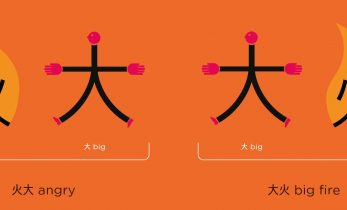Greater than 6 minutes, my friend!
Slator.com Goes Boldly Where ATA (American Translators Association) Members Fear to Tread
“As a member of the American Translators Association, I would never discuss translation rates in a public forum”, said for the n-th time a presenter at the recent BP (Business Practices) Conference of translators in Prague where I was one of the participants and presenters, before she launched again into a generalized comparison of rates charged by various translation agencies for translating the same text. Each time she said it with a completely serious face – about half a dozen times during her presentation – her qualifying statement, which could have been taken seriously based on the expression on her face, or as a joke, take your pick, was met with the same reaction – a whole room of translators appreciatively erupting into laughter and chuckling at what she said.
The translators, and I was one of them, were laughing at the absurdity of her statement. No business can exist and survive without having a good understanding of the fees that it can charge its customers. Because knowing how much or how little your competition is charging means that you known how much you yourself can get away with, this knowledge is one of the most important pieces of intelligence that any service supplier simply must have.
Just about every month I receive a few fake “Price Quote Requests” from a would-be competitor who wants to know how much I charge for the kind of work that I do …. in order to charge one cent less. This month it was some Korean guy who lives in China. He sent me a Japanese patent for a price quote for translation from the handy Price Quote Request Form on my website, while pretending to be representing some Chinese Patent Research Institute.
I almost fell for his trick because when I ran a Google search, I found out that such an institution really exists and that it is based in Singapore. But because the guy only gave me a Gmail address, I was not convinced and continued searching until I was able to establish that he probably has nothing to do with this research institution because the fax number that he gave me, (he did not give me a phone number so that I could not talk to him), was listed on a well known blind auction translation site where he was looking for translators to work for him. So I ignored him and he still does not know how much I charge.
Because translation rates or fees are so important, the ATA (American Translators Association) has recently updated its policy on rules for ATA members who are speaking in public venues about translation rates. Under the pretext of compliance with Antitrust legislation, created a century ago to protect little people from all-powerful corporations in the era of robber barons, these rules are now applied by the ATA to achieve the opposite effect of what was intended by the original legislators, namely to keep ATA members in darkness when it comes to how much or how little they should charge for translating and interpreting services. As Tony Rosado, like myself also an ATA member, put it on his blog:
Fortunately, non-ATA members, who flocked to the BP16 Conference in Prague from many countries in all the five continents, are not subject to the ATA gag order on discussion of rates in public. Apparently, unlike in the land of the free and the home of the brave, translators are still free to discuss in public venues anything they want, including rates and fees, in enlightened countries where democracy is more robust and freedom of speech is still a given, such as in Lukashenko’s Belarus or in Sisi’s Egypt (I had the pleasure of talking at length to translators from both of these countries at the conference in Prague).
Slator.com apparently is not subject to ATA’s gag order on rates because it recently published a review of rates that various translation agencies in the United States are charging to the US government, as this information is publicly available on the website of the General Service Administration (GSA) of the US government. “In its quest for transparency, the GSA went as far as publishing all the proposals (schedules) submitted to it by its accredited language services providers” (quoted from Slator).
Apparently, the US government is not bound by the ATA’s gag order on rates either, only ATA members must keep mum on the tricky and dangerous issue … if they know what’s good for them!
It is a well known fact that the US government is trying to pay as little as possible for professional services purchased and that it is usually easier to get away with higher rates, especially for rush translations, when one works for direct clients, such as patent law firms.
But I happen to know that it pays quickly, generally in three weeks, and pretty good rates, especially compared to the kind of rates that some translation agencies, especially the big ones, would like to pay to translators because I do sometime work directly for the US government myself. In particular, I translate Japanese and German patents for the Department of Justice.
Thanks to Slator, I was able to ascertain from the range of rates published on its site that the rates that I am charging to US government are quite reasonable.
By publishing the rates that an agency of the US government is paying for translation to various translation agencies, the General Services Administration is, perhaps unwittingly, doing what major translation agencies and the American Translators Association, which should really be working for us translators and not for corporatized translation agencies, are trying to prevent, namely making existentially important information available to all translators.
As I have already discovered from the reaction on social media when I tweeted about the analysis of government rates paid to translation agencies on Slator, several translators expressed an outrage at how little the people who do the actual translating work, called translators, are being paid by same agencies who may be charging the customers much, much more than what the people doing the work can ultimately receive in the current translation agency model.
That Slator brought a little bit more transparency into the issue of rates is definitely appreciated by translators, and definitely very much unappreciated by the translation agencies whose business model abhors transparency like nature abhors vacuum. The funny thing is, neither is it appreciated by the ATA, which should be working for us, translators, but based on its policy about keeping mum on rates, is working for the agencies.
I think that the powers that be at the ATA should ask themselves the following question:
In the age of Internet, does it really make sense to try to manufacture ignorance by prohibiting members of an association of translators from discussing in public fees and rates that are paid to translators by direct clients and by translation agencies?
Apart from the issue of legality – the first Amendment to the US Constitution states unequivocally that the freedom of speech may not be abridged, not even by the American Translators Association when it comes to talking about rates – the problem is that this gag order simply cannot be enforced in modern society no matter how threateningly and legalistically it may be formulated and how convoluted the argument for its existence may be.
Disclaimer: As a member of many years of the American Translators Association, I would never, ever, discuss concrete translation rates and fees in public venues, as I am aware of the ATA’s policy regarding strict prohibition of speaking publicly about translation rates and fees in compliance with the US Antitrust legislation.
I am merely commenting on information that is publicly available on the Internet and linking to it on my blog, which is probably still allowed by the American Translators Association.





Ha! I was just reading the exact same article. To be honest I really don’t understand why do people make such a big deal out of translation rates. What harm do such discussions bring? In my opinion they can only improve situation for us, translators because when those discussions do happen, they can be pretty eye-opening especially for those who’re new to this profession or have been working solely with the companies of the “translation industry” far too long.
It almost seems like it’s some kind of a taboo in certain cycles. This lack of transparency creates speculation, and hurts translators. I just don’t get why do translators agree with such provisions and ridiculous laws. But, hey! I’m a Canadian, so what do I know! 😉
Honestly, I never understood why rates cannot be shared, because I also don’t understand how you can share a rate in a meaningful way. Rates don’t say a thing.
My rates depend on
– the complexity of the document
– the help I may or may not get from tools (MT/TM, …)
– the amount of terminology in the document that I don’t know yet
– the number of long & complex sentences (I hate those!)
– my sales funnel (if I have no other projects waiting, I tend to be cheaper)
– the competition (if I believe not a lot of translators can translate this, I tend to be more expensive)
– if it’s for a loyal customer, a friend, or a good cause…
For me a rate, even an hourly rate, does not mean a thing. The only thing that matters is what I think I should charge for a document. Of course I count words, or pages, or images… but in the end I make a quote using observations. And I try to make a fair quote. I don’t want my customers to feel bad about my quote. If my quote is high, I will explain why this is the case.